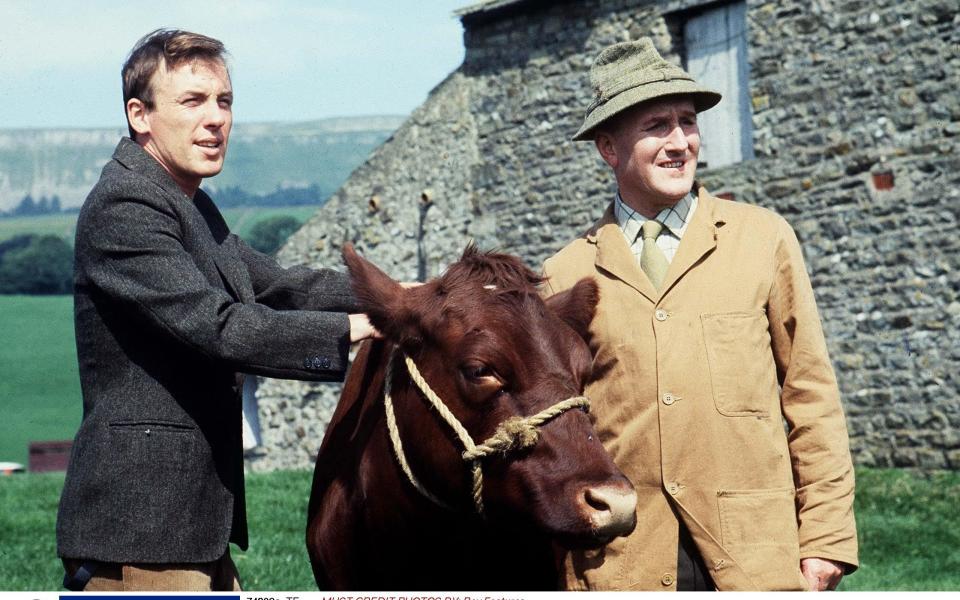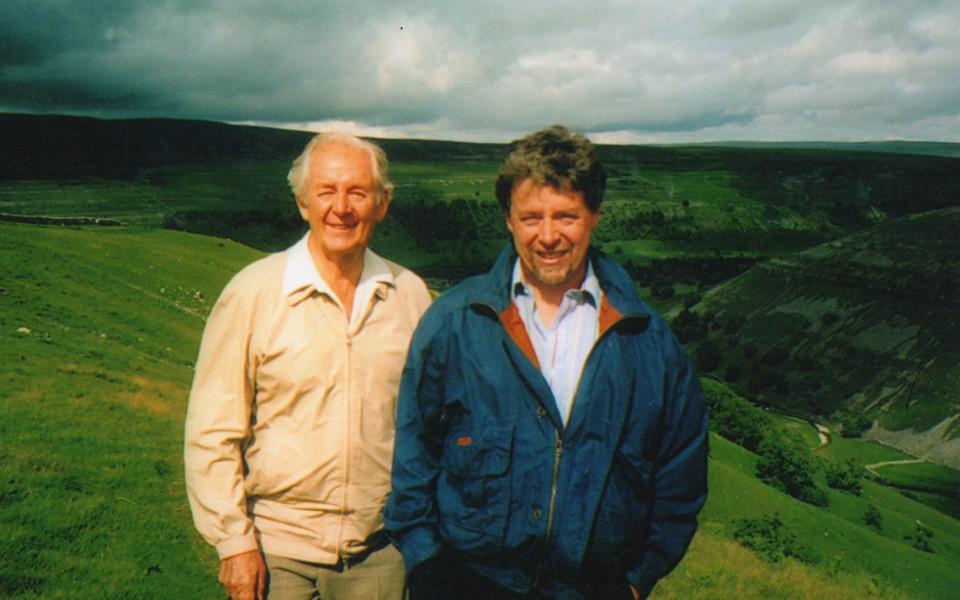Without America, All Creatures Great and Small may never have been born

Whether it’s the dizzying effects of the Marvel universe, or the high-stakes family affairs of Succession, American TV has never shied away from drama.
So the news that the gentle All Creatures Great and Small reboot is a ratings juggernaut in America has been met with some bewilderment back in the UK. Around 10 million Americans have watched the new adaptation, depicting the wholesome village life of vet James Herriot in 1930s Yorkshire, with the PBS network currently broadcasting the show’s second series to popular and critical acclaim.
Yet under closer examination, this success in the States shouldn’t come as a surprise. Because this most British of franchises was, to some extent, made in America.
Alf Wight, the real-life Yorkshire Dales vet who wrote under the Herriot pen name, had released two books in Britain, If Only They Could Talk in 1970 and It Shouldn’t Happen to a Vet in 1972, which had sold only a few thousand copies before the two books were combined into one, named All Creatures Great and Small, and released in America in November 1972.
“My dad always said the Americans were the ones that turbocharged his sales,” the late author’s son, Jim Wight, recalls. “Within three months of the book's release in the US, it was sitting on top of the New York Times bestsellers, where it stayed throughout 1973. Then, of course, the publishers in this country saw his success over the pond, and realized he was one of us, so it started a forest fire in the UK as well. Dad would say, ‘I like the Americans, because the Americans like us, and I like people who like me!’”
Without that initial support from America, it is quite likely that this tale of British rural life would never have become the successful franchise it remains today. And it certainly wouldn’t have its endearing, and enduring, title.
American media executives have history for changing the names of British cultural offerings to suit their tastes, often to the derision of their friends across the Atlantic. The movie version of Alan Bennett’s historical dramedy The Madness of George III was famously changed to The Madness of King George for the American audience, to assure them they hadn’t missed the first two films in a trilogy.
But in the case of All Creatures Great and Small, it was the American title, chosen by Boston-born St Martin’s Press CEO Thomas McCormack, who was behind the book’s release in the States, that has defined Herriot’s world for more than 50 years.
“Tom decided we shouldn’t use the quirky titles we used in Britain for America, and he wanted something with a religious tone,” Jim, 78, explains.
“My sister Rosie suggested ‘Ill Creatures Great and Small.’ We all liked it, but Tom said it should just be ‘All Creatures Great and Small.’ So we went with that.”

Of course, the US success of that original novel was then followed in Wight’s homeland, and in the coming decades his series of books sold more than 60 million copies around the world, were turned into two films, and a BBC series that ran from 1978 to 1980 and then returned 1988 to 1990. And this month it was announced this latest adaptation, watched by more than five million on Channel 5 in the UK and starring Nicholas Ralph as the beloved vet, has been commissioned for two more seasons.
In the US, the show is being called the biggest British drama import since Downton Abbey, which was watched by 13.3 million on PBS at its peak, and joins a stable of polite UK shows that have quietly conquered the country, with The Great British Bake Off also a hit in the States for streaming platform Netflix.
“First time round, the good old Yorkshire depicted in dad’s books were a lovely contrast to the high-speed technological world that was developing in the 1970s,” says Jim, who followed in his father’s footsteps as a vet and lives in the pretty Yorkshire village of Sutton-under-Whitestonecliff.
“I think the same applies now, 50 years later, with the success of the news series. It’s an escape for people in an uncertain world.”
It is fitting that Wight’s uplifting stories have provided solace for so many. He suffered with depression throughout his life, and even underwent electroconvulsive therapy in the 1960s. But according to his son, writing his books helped him through the tough times.

He says, “He had an extremely fulfilling life, and he loved his work. But he did have demons right until the end, occasionally he'd feel very melancholy. He had one severe nervous breakdown in 1960, when I was in sixth form. But after his breakdown, it was extra impetus for him to write. It was great therapy for him, the writing.”
Jim remembers his dad, who died in 1995, as a “modest man” who “didn’t want the adulation.” That didn’t stop American tourists flocking to Yorkshire, scenes that will be repeated in the next few months, with the villages associated with the show reporting a spike in bookings from the US.
But these queues of American tourists with books to sign, snaking down the street from Wight’s veterinary practice in the quiet village of Thirsk, were better than the alternative.
“He was talked into going to America twice in 1973,” Jim recalls. “He came back so knackered from the second trip he decided he wasn’t going to go back again. He found it very taxing, traveling the length and breadth of the country to appear on radio and TV. He loved the people, but said, ‘If they want to see me, they can come over here!’”

